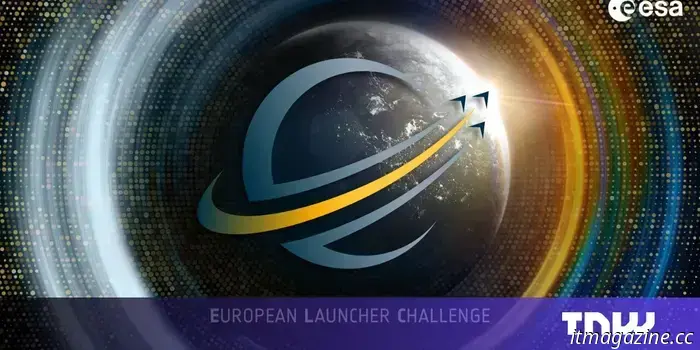
Introducing the five space technology companies competing to become Europe’s next launch service provider.
Five rocket companies are set to compete for contracts aimed at providing Europe with new launch services, addressing the continent's current challenges in accessing space. The European Space Agency (ESA) has chosen these five contenders, who will vie for two types of contracts:
1. Launch services for ESA from 2026 to 2030.
2. Demonstration of enhanced launch capabilities, which will include at least one flight test.
This initiative, called the European Launcher Challenge (ELC), seeks to broaden Europe's options for reaching space, which have been severely limited in recent years. Following the retirement of the Ariane 5 rocket in July 2023, ESA found itself without independent access to space, relying solely on SpaceX for launches and sacrificing autonomous control over its flight paths. This situation resulted in European taxpayer funds supporting an American company that competes with local firms, prompting Thierry Breton, the EU's internal market commissioner, to label it an "unprecedented crisis."
ESA regained sovereign access to space in July with the first flight of the Ariane 6 rocket, providing much-needed relief. However, the Ariane 6 has significant drawbacks compared to SpaceX’s Falcon 9, including a lack of reusability, higher costs, less flexibility for small launches, and slower launch rates due to bureaucratic issues. The ELC aims to alleviate these challenges, offering substantial financial incentives, with ESA allocating up to €169 million for each participant.
Here are the five contestants for this funding:
**Isar Aerospace**
- Founded: 2018
- Headquarters: Ottobrunn, Germany
As Europe's most well-funded space technology company, Isar Aerospace develops rockets for small to medium satellite payloads. Originating from the Technical University of Munich, the firm aims to deliver cost-effective and flexible launch services. Isar's Spectrum vehicle made its inaugural flight in March—the first vertical orbital rocket launch from Western Europe—though the rocket exploded shortly after lift-off. Nonetheless, Isar deemed the launch a “great success.”
**MaiaSpace**
- Founded: 2021
- Headquarters: Paris, France
MaiaSpace focuses on designing, manufacturing, and operating competitive and sustainable space mobility solutions. As a subsidiary of ArianeGroup—the lead contractor for Ariane 6—the company is working on a reusable, two-stage rocket named Maia, which is designed for vertical takeoff and landing, similar to a smaller Falcon 9. Its first launch is scheduled for 2026.
**PLD Space**
- Founded: 2011
- Headquarters: Elche, Spain
PLD Space also emphasizes reusability with its suborbital rocket Miura 1, which successfully completed a test flight in 2023, marking Europe’s first fully private rocket launch. The company is currently developing the larger Miura 5, a two-stage reusable orbital launcher for small payloads. In December, PLD Space secured an €11 million loan to aid its development, with the rocket's first flight expected in the first quarter of 2026. The Miura 1 launch took place at the Arenosillo Test Centre (CEDEA) in Huelva, Spain.
**Rocket Factory Augsburg (RFA)**
- Founded: 2018
- Headquarters: Augsburg, Germany
RFA, a spinoff from German space tech leader OHB SE, has its flagship rocket, the RFA One, designed for frequent, cost-effective missions. The company has gained access to SaxaVord Spaceport's first launch pad, although it faced setbacks when a rocket exploded during a test there last year. Nevertheless, RFA is committed to developing low-cost, high-performance rockets, aiming for an inaugural launch later this year.
**Orbital Express Launch**
- Founded: 2021
- Headquarters: Forres, Scotland
Known as Orbex, Orbital Express Launch is developing a small orbital rocket called Prime, touted as an environmentally friendly, reusable launcher, with its first flight planned for 2026. The company is also working on a larger rocket, Proxima, with the CEO claiming it could enable Orbex to compete with SpaceX on pricing, provided it secures a contract with the ELC.
ESA will soon engage in discussions with the five companies and their respective Member States regarding the proposals before deciding which will receive contracts.

Other articles
 ROMOSS halts production for six months as the power bank giant confronts an escalating crisis and potential layoffs.
The prominent Chinese power bank company ROMOSS has unexpectedly declared a six-month halt beginning July 7, pausing all production and business activities.
ROMOSS halts production for six months as the power bank giant confronts an escalating crisis and potential layoffs.
The prominent Chinese power bank company ROMOSS has unexpectedly declared a six-month halt beginning July 7, pausing all production and business activities.
 Funding emphasis: Biotech leads the top 10 funding rounds in the Netherlands during the first half of 2025.
Biotech startups accounted for half of the top 10 funding rounds in the Netherlands during the first half of the year. Here’s the complete list.
Funding emphasis: Biotech leads the top 10 funding rounds in the Netherlands during the first half of 2025.
Biotech startups accounted for half of the top 10 funding rounds in the Netherlands during the first half of the year. Here’s the complete list.
Introducing the five space technology companies competing to become Europe’s next launch service provider.
ESA has selected five rocket companies to vie for contracts worth €169 million, with the goal of reinstating Europe’s independent access to space.
